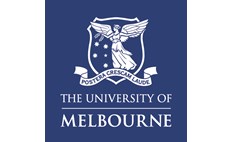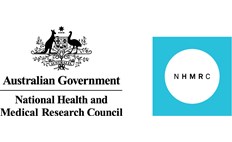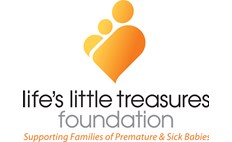Webinars and Short Cut Videos
Listen-Share-Learn: Developmental monitoring and follow-up of children born sick or premature
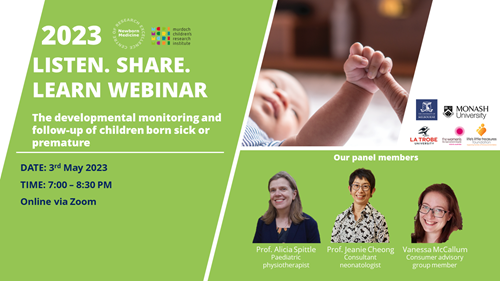
Thank you to everyone who joined us online for our third ‘Listen.Share.Learn’ event on Wednesday 3rd May 2023.
We have had such great feedback from both the families and the health professionals that attended.
Our panel of experts included a Consultant Neonatologist, Paediatric Physiotherapist and a parent from the CRE Consumer Advisory Group. They loved the opportunity to answer questions and share their insights about developmental monitoring and follow-up for children born sick or premature.
You can watch a recording of the event here:
We look forward to bringing you more discussion in our ‘Listen.Share.Learn’ series, where we will continue the online discussions between health professionals & families to create change.
Please note: The information and discussion in this video is not intended as a substitute for health and medical advice from a professional. Please speak with your family doctor or health professional for more information and support around this topic.
Listen-Share-Learn: Navigating the education system for preterm system
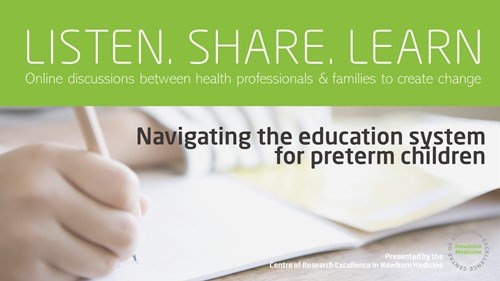
Thank you to everyone who joined us online for our second ‘Listen.Share.Learn’ event on Wednesday 11th August.
We have had such great feedback from both the families and the health professionals that attended.
Our panel of experts included a Developmental Paediatrician, a Neuropsychologist, an Educational Psychologist, an Education Disability Coordinator and parents of preterm children. They loved the opportunity to answer questions and share their insights about Navigating the Education System for Preterm Children.
You can watch a recording of the event here:
We look forward to bringing you more discussion in our ‘Listen.Share.Learn’ series, where we will continue the online discussions between health professionals & families to create change.
Please note: The information and discussion in this video is not intended as a substitute for health and medical advice from a professional. Please speak with your family doctor or health professional for more information and support around mental health.
Listen-Share-Learn: Parent Mental Health in the Neonatal Unit and Beyond
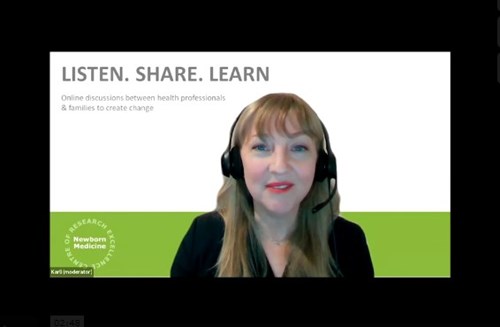
Thank you to everyone who joined us online for our first ‘Listen.Share.Learn’ event on parent mental health in the neonatal unit and beyond held on Tuesday 13th April 2021.
Guided by a panel of parents and health professionals from multiple disciplines (nursing, social work, psychology and medicine) registered participants had the opportunity to learn about parent mental health following a neonatal admission, have their questions answered and contribute to improving the mental health outcomes of families experiencing neonatal care.
We have had some wonderful feedback from those that attended.
We look forward to our future ‘Listen.Share.Learn’ events where we will continue the online discussions between health professionals & families to create change.
You can watch a recording of the event here:
Please note: The information and discussion in this video is not intended as a substitute for health and medical advice from a professional. Please speak with your family doctor or health professional for more information and support around mental health.
2020 Newborn Medicine Online Forum: Recordings now available!
Thank you to all who attended our 2020 Newborn Medicine Online Forum. It was a big success with lots of ideas flowing in about what you would like to see from us next year! In the meantime, please enjoy the recordings from this year’s forum below.
You can view the full forum here or see below for individual presentations.
Forum Introduction

Origins of the CRE in Newborn Medicine

Professor Lex Doyle
Our CRE grew out of the need to improve the care and long-term outcomes of newborn babies, particularly those born too small or too early, and those who were unwell as babies and required intensive care. Over time the questions to be answered became more complex, and required more collaborators; hence our CRE in Newborn Medicine was created. Collectively we can achieve much more to improve the outcomes for our babies and their families than we can as individuals.
Helping Babies Breathe in the Delivery Room & Beyond

Professor Peter Davis
Peter Davis will outline the program of discovery being undertaken in the delivery room, including how best to resuscitate newborn infants, stabilisation of preterm infants with the umbilical cord intact, imaging the first breaths of life with lung ultrasound, and the challenges neonatal researchers face in this high-pressure environment.

Associate Professor Brett Manley
Brett Manley will present some of the important trials the team have undertaken in the nursery to optimise the respiratory care of newborn infants, particularly preterm infants, including the international PLUSS trial that aims to improve outcomes for extremely preterm infants and is currently underway.
Life beyond the nursery - outcomes into adulthood

Professors Lex Doyle and Jeanie Cheong
Lex Doyle and Jeanie Cheong will present outcomes from the Victorian Infant Collaborative Study, a program of research that started in the 1970s, with the goal of understanding the health and developmental outcomes of babies born extremely preterm. This is the only program of its kind in Australia. They will draw upon exciting new research of how these babies are doing at 25 years’ of age.
Understanding why developmental outcomes vary for children born very preterm

Professor Peter Anderson
The long-term outcome for children born very preterm differs from child to child, which makes it difficult for physicians to provide accurate prognostic information to families and targeted intervention strategies. For example, some children born very preterm have no obvious learning, motor, or behavioural difficulties, while others have mild to serious problems. This presentation will briefly outline the work of the Victorian Infant Brain Studies (VIBeS) team, who has spent the past 2 decades trying to understand the reasons for the variable outcomes following preterm birth, with a specific focus on the role of 1) brain changes at birth, 2) later brain development, 3) parental mental health, and 4) parenting.
Lessons Learned from partnering with families

Professor Alicia Spittle
This presentation will highlight work from members of our CRE in Newborn Medicine Consumer Advisory Group including parents of babies born early or sick including their experiences in the research process and knowledge translation process and where to for the future.
Q&A Session
Short Cut Video Series
Short Cut Video 1: Bronchopulmonary Dysplasia (BPD)
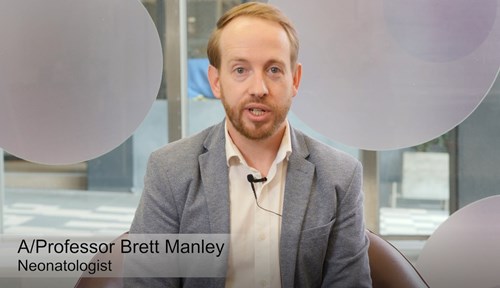
Extremely preterm babies are born before 28 weeks' of gestation (more than 3 months early). Bronchopulmonary Dysplasia or BPD is a chronic lung disease that affects the growth and development of extremely preterm babies' lungs. Despite improvements in medical treatments and technologies in the neonatal intensive care unit, BPD is still a big problem with around half of all babies born extremely preterm being diagnosed with BPD.
The Centre of Research Excellence in Newborn Medicine sat down with leading expert Associate Professor Brett Manley to ask some important questions about BPD for babies and families in the neonatal unit and beyond. Learn about the condition, its treatment, and some groundbreaking research that aims to reduce BPD and improve the health and developmental outcomes for extremely preterm babies.
If you have any feedback, questions or ideas for topics our Short Cut Video Series, please email us at crenewbornmedicine@mcri.edu.au
Short Cut Video 2: Parent mental health & wellbeing after a baby’s admission to a neonatal unit
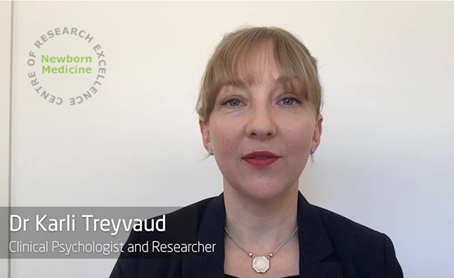
Having a baby born prematurely or unwell is a stressful experience for families and it’s normal for parents to experience high levels of distress.
During the early days and weeks, it’s common for parents to experience a range of different emotions that can change from day to day. Each person’s emotional and mental health experience will be unique to them and will be influenced by many different factors. The quality of our mental health can have a significant impact on our quality of life, on our relationships, including our relationship with our children, and on our daily functioning. It’s important that parents have access to support for their mental health and wellbeing following their baby’s admission to a neonatal unit.
In the Centre of Research Excellence in Newborn Medicine’s latest short cut video, we hear from Associate Investigator and clinical psychologist, Dr Karli Treyvaud, and clinical psychologist and mother of Adam, born at 28 weeks’ gestation, Dr Tabitha Keon, as they discuss some of the emotional and mental health challenges parents may face after their baby is admitted to a neonatal unit, some signs and symptoms for parents to be mindful of, and when and how to access support.
If you have any feedback, questions or ideas for topics our Short Cut Video Series, please email us at crenewbornmedicine@mcri.edu.au
Prematurity Road Map Series
The CRE in Newborn Medicine have held several Facebook Live sessions with our investigators presenting information on various topics within Newborn Medicine.
These sessions can be viewed through the MCRI Facebook page at the following links:
- Lung Health
- Preterm children and the Autism Spectrum
- Preterm children and ADHD & attention difficulties
Our team are busy planning the next Facebook Live session in the Prematurity Road Map Series.
If you have a topic you would like to see discussed by our team, send us an email at crenewbornmedicine@mcri.edu.au we would love to hear from you.


